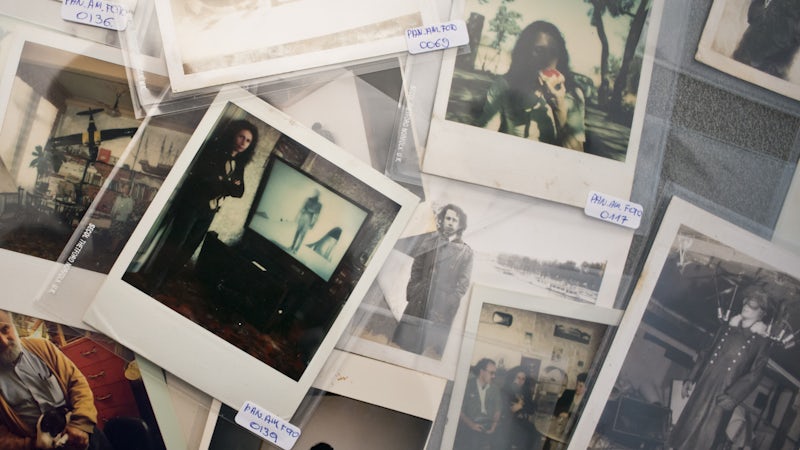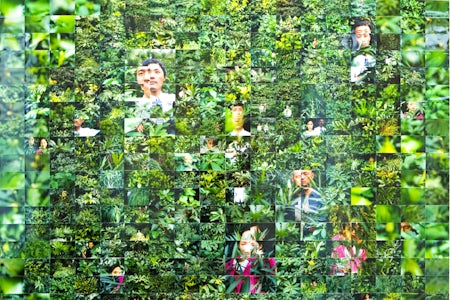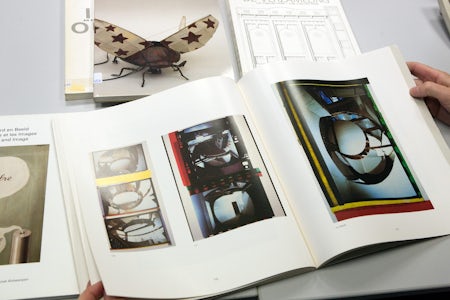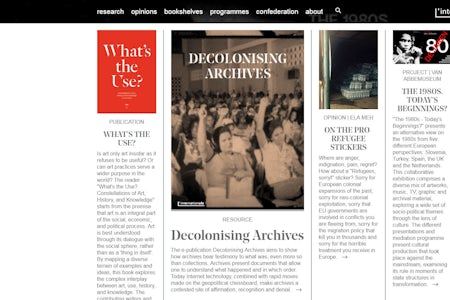In 2016 the M HKA drew up a reflection document entitled Museum Research in order to arrive at a research plan. This document maps out several perspectives on research to which museum research might adhere and tries to formulate an answer to the question of the museum’s own definition of its research, which, being very much characterised by an interdisciplinary approach, can best be compared to ‘forensic research’. The document also describes several qualities that apply generally to this museum research and how the M HKA puts them into operation in its museum work.
The M HKA has since 2002 set up a systematic practice of research and visualisation of its collection, which was provisionally rounded off in 2013 by the second book surveying the collection: Het karakter van een collectie. In parallel with this, the M HKA developed a historiographic plan, centred on the question of the international postwar avant-garde, and contextual research practices. Both are currently being largely continued on the cooperation platform set up by L’Internationale, the European museum confederation.
The focus of the research is apparent not only in the presentation work, but also in the in-depth work with certain artists such as Jimmie Durham and Panamarenko, whose house and archives the M HKA also administers. Another channel is in research cooperation over several years, as with the KASK for Edwin Carels’ arts PhD related to animated film, starting in 2008, or the ambitious project set up on the initiative of Professor Hilde Van Gelder and Leuven University, with two PhDs on the Allan Sekula ensemble at the M HKA. There is cooperation with the Antwerp Academy on the archives of Hugo Roelandt, and the M HKA is developing a research platform on the artist and performance art in Belgium.
In recent years the M HKA has also concentrated on the gradual development of tools by which to quantify the research output and give it visibility, such as ensembles.org (a CMS – Content Management System – that aims for the incremental and differentiated structuring of information and which connects research with orientation towards the public), started in 2011, which is the core instrument by which these output-oriented developments are aligned. In addition, research is also made accessible by means of such instruments as discursive web platforms (Afterall, L’Internationale Online), the ARTtube video platform, various digital research platforms and e-books.
All this is founded on the conviction that museums have a right to exist in the sense expressed in the ICOM definition: the collection of the material and immaterial evidence of man and his environment, its conservation, presentation and research into it.



